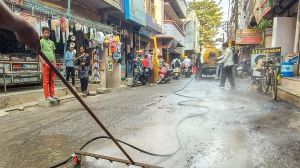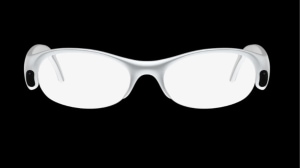National interest
Your turn to strike, Mr Prime MinisterYou might think I need to get my head examined for saying this, but here ismy list of the three most...

Your turn to strike, Mr Prime Minister
You might think I need to get my head examined for saying this, but here ismy list of the three most significant good news stories of the past week: 1the Uttar Pradesh State Electricity Board UPSEB workers8217; strike; 2 theDock Workers Union8217;s success in paralysing the major ports in the country;and 3 the threat by truck workers in Delhi to go on strike rather than paythe newly imposed toll tax for entering the Capital.
There are many good reasons why this should have normally been bad news butis actually good news. First of all, it means, in fact confirms, thatgenuine economic reform in the country is finally underway. There is nothingto prove the fact to you than the series of trade union protests. A bit likea doddering old immune system kicking back in sheer desperation.
Secondly, given the fact that these strikes will affect the ordinarycitizen, it should give the reformist government just the platform it needsto build a constituency among consumers. Th-ere can be no greater lobby forreform than this.
Thirdly, it is just what the bloody-nosed government reeling under thehumiliation of Kandahar needs to wash away the clot of being soft in thehead, heart and underbelly.
The choice for Vajpayee is very clear. He could either go the Gujral orGowda way by surrendering to the trade union equivalent of the Kandaharhijack. Or he could read a little bit of the history of the Thatcheritephase and go the way of a Maggie or an Indira. One look at the issues andyou see why this is such a good opportunity for the government to show somespunk.
The workers of UPSEB want it to reverse the decision to trifurcate theelectricity board. Their jobs, including retirement benefits, have beenstatutorily guaranteed. So what are they complaining about? The loss,hopefully, of all unwritten privileges and perks of an electricity boardjob? The freedom not to bill the consumer according to what his meter saysbut on the basis of what underhand deals you make, to allow rampant theft ofpower or to run the power plants at 30 per cent capacity or thereabouts andbe accountable to no one. Least of all to the consumer.
Ask any long suffering citizen of UP what his biggest problems in life areand he will tell you they are electricity and law and order, in that order.Ev-ery year the pilferage of power from UPSEB exceeds Rs 2,500 crore. Thiscomes not only out of the pocket of the taxpayer but also by robbing thepoorest of the poor of the money that could have gone into anti-povertyschemes and development. This money, as well as costs of all theinefficiencies and the poor bill collection, is paid directly by some of ourpoorest citizens. It is too early to say if what the UP government isinitiating will solve all this. But at least it has acknowledged the problemand is genuinely moving towards finding a solution.
UP Power Minister Naresh Agarwal has certainly shot his bolt a bit by almostinciting the ordinary consumer to riot by appealing to him to take on thestriking powermen. His intentions are right but the method is all wrong.What is needed is not a riot on the streets but a clearer understanding ofthe issues by the ordinary people so that they sift workers8217; interests fromcollective blackmail.
Once they do that, the essence of economic reform will be far clearer tothem. Unfortunately, the way economic reform began in the Narasimha Raophase, it acquired a pro-rich, pro-multinational and thereby an anti-poorand anti-swadeshi tinge. Probably because no one had the interest or thepatience to address the more key issues like basic infrastructure.
The initial reforms were confined to consumer goods and luxuries. So you gotquot;Indian madequot; Wrigley8217;s chewing gum years before an independent powerproducer could send one mega-watt in the grid. You had foreign fishingtrawlers vacuum cleaning our coastal waters, pauperising the alreadymarginal fisherman, before even the foundation stone of the first port waslaid.
We saw prices of fuel and road taxes go up across the board without a mileof post-reform highways built. Far too many of Rao8217;s ministers gave reform abad name. In any case they saw an opportunity to make big money by dishingout favours and patronage. The Salve/Sukhram shenanigans in the power andtelecom sectors are some good examples. The Vajpayee government now has thechoice to reverse all that.
A democracy will accept the pain of reform only if it is convinced that itis good for a wide majority of its people. The reformers8217; blunders so farhave been to confine the message only of the Sensex-driven classes. Thestrikes in UP, at the ports and hopefully by the truckers can now help thisgovernment take the same message to the slumdweller in Kanpur, the marginalfarmer in Meerut or the lowliest worker at a SAIL plant whose fortunes havenow been well and truly nixed by the port strike just when steel exports hadpicked up.
Simple logic this, and it should be perfectly possible for the politiciansto take it to the people.
In 1998, in the disastrously confusing week after Yashwant Sinha8217;squot;roll-backquot; budget, Vajpayee was once believed to have lost his cool withhis party MPs by demanding reversal of the subsidy cuts. quot;If we can8217;t evengo out and convince the people why it is needed and that it is good for themin the long run, then why have we been in public life for 50 years?quot; he issupposed to have said. This is what he has to say to his partymen, alliesand himself now.
It should not take too much to convince people on the need for powerreforms. Almost all of us outside cities like Mumbai, Calcutta andAhmedabad, which are blessed with private power, have a tale or two to tellof harassment, blackmail and overcharging besides long hours of power cutsand voltage fluctuations that burn our TVs, computers, refrigerators and thefarmer8217;s pumping set motors.
It should also be simple to explain to people what are the consequences of aport shutdown just when the economy was turning around. As for the truckersin Delhi, the possibilities are delicious. Maybe, if they refuse to paytoll-tax, you and I could also thumb our noses at our income tax officers aswell.
This is Vajpayee8217;s moment of truth. If he gives in now he will be judgedcruelly by history as just another third front-type wimp who only roared atelection meetings but went out with a whimper when confronted with a realchallenge at Kandahar or Kanpur. But if he stands firm now, he would beremembered as a genuine reformer who brought about a generational shift inhis country8217;s economy and society.
- 01
- 02
- 03
- 04
- 05































